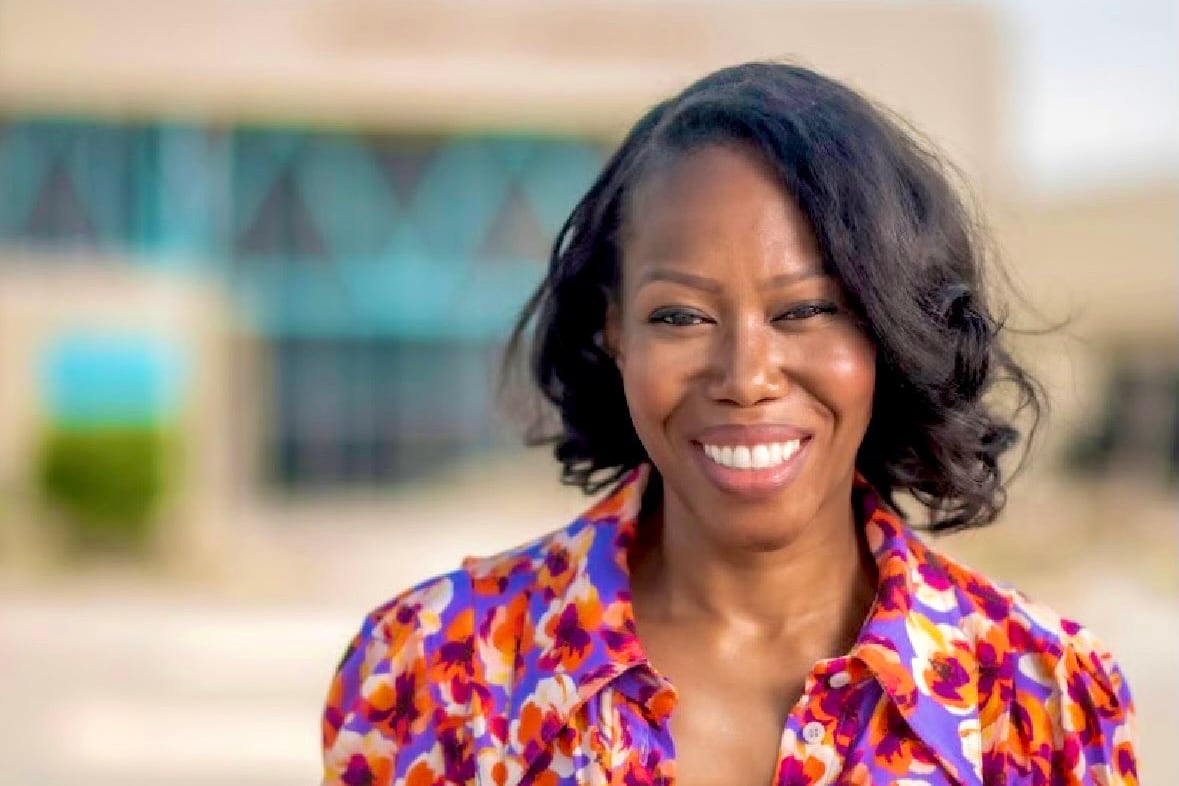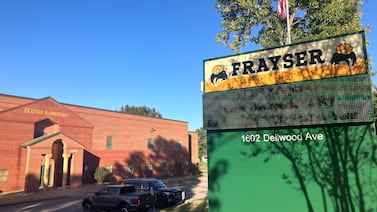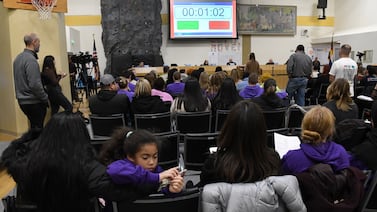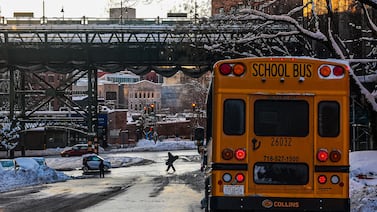Sign up for Chalkbeat Colorado’s free daily newsletter to get the latest reporting from us, plus curated news from other Colorado outlets, delivered to your inbox.
A former Denver Public Schools teacher who graduated from DPS and whose children are current students is running to represent northeast Denver on the school board.
Monica Hunter is vying for the District 4 seat held by Michelle Quattlebaum, who is running for re-election. Hunter will face at least two other opponents as well.
Hunter, 37, said she decided to run because it has been frustrating to watch important decisions about school funding, mental health, and other issues being made by board members who have never been a DPS student or taught in a DPS classroom.
Hunter has been endorsed by the Denver Classroom Teachers Association.
“I entered the race sort of late because for me, this is not a stepping stone,” Hunter said. “I’m doing this out of a need. … I was hoping for someone to run that was connected more to kids and to families and to teachers, and that did not happen.”
Four seats on the seven-member Denver school board are up for grabs in the Nov. 4 election, which comes at a key time. Declining enrollment has led to more than a dozen school closures in the past two years, and a new policy for low-performing schools could lead to more closures.
The district’s graduation rate is up, but some students are still recovering from pandemic-era learning loss. In recent months, DPS has found itself targeted by the Trump administration over an all-gender restroom and its support for immigrant students. And the board recently ordered an investigation of one of its members over allegations of racial discrimination.
Born and raised in Denver, Hunter is a graduate of George Washington High School. She was a student teacher at Willow Elementary before getting a job as a first grade teacher at John H. Amesse Elementary. Hunter said the difference between the two DPS schools was glaring.
Willow had a new building, iPads for every student, and parents who raised enough money for the school to hire additional teachers, Hunter said. Amesse had none of that, she said, and was facing a potential closure vote by the school board due to low test scores.
“Closing a school and penalizing it for not having the same amount of resources, it just isn’t equitable,” Hunter said. “I cannot reduce any student or school to a test score. Does reading need to improve? Absolutely. … Do we need to close the achievement gap? Absolutely. Is shutting down their school really going to close it? No, it’s not.”
Amesse avoided closure, and Hunter took a job at Green Valley Elementary, a nearby DPS school where she stayed until she left teaching in 2020. Hunter now works as a director of human and civil rights for the Colorado Education Association, the state’s largest teachers union. In that role, she said she helped launch a mental health hotline for educators and a fellowship for teachers of color.
Hunter was active in her local union, the Denver Classroom Teachers Association, when she taught in Denver, helping to found DCTA’s Black Educator Caucus. The caucus advocated for teachers at semi-autonomous innovation schools to retain their union contract rights, a change the school board eventually adopted.
Hunter has a blended family of six children, five of whom will attend DPS in the fall. Her kids range in age from preschool to fifth grade, and Hunter said they attend a mix of traditional district-run and innovation schools. Her oldest attends a private school. Hunter declined to name the schools to protect her children’s privacy.
If elected, Hunter said she would prioritize keeping any budget cuts due to state or federal funding shortfalls from impacting DPS classrooms. She said she’d also prioritize providing mental health support to both students and educators.
“We cannot afford any more cuts to education and to classrooms,” Hunter said. “I just want to start there because I think people can promise a lot of things.”
Enrollment in DPS is expected to decline 8% by 2029, which could mean more school closures. Hunter said it would be “very hard” for her to vote to close a district-run school.
“I’d truly want to look at other solutions,” she said.
Hunter said she does not have a personal opinion on Superintendent Alex Marrero, but she questioned why the board renewed his contract in May before the district came to a tentative agreement with the union on a new teachers contract in June.
“From a parent lens, I did not understand the rush,” Hunter said. “We want good board members, we want superintendents who want to do a good job … but we can’t have a school without students and teachers and support staff. Those are the essential heart and soul of schools.”
Melanie Asmar is the bureau chief for Chalkbeat Colorado. Contact Melanie at masmar@chalkbeat.org.






